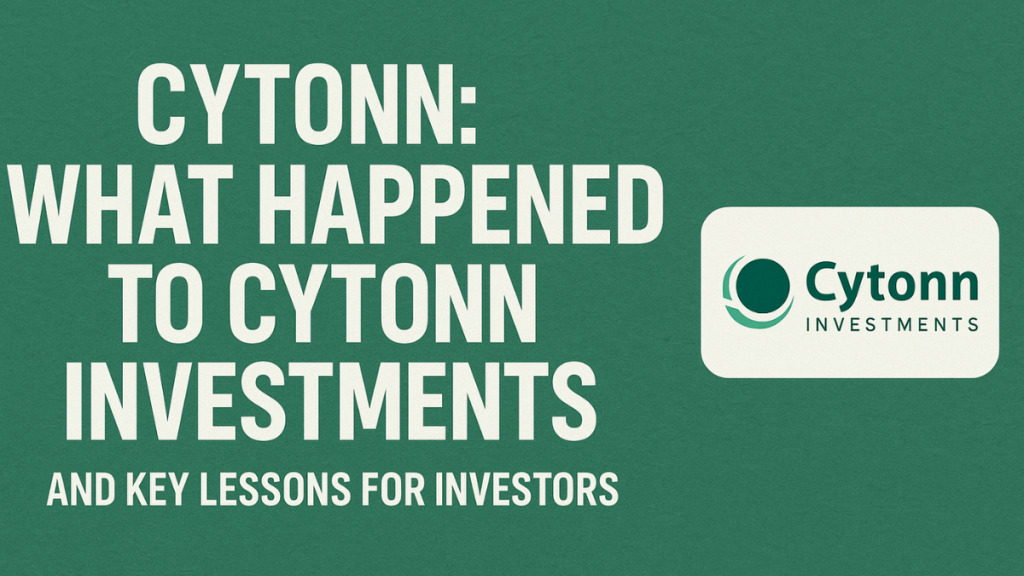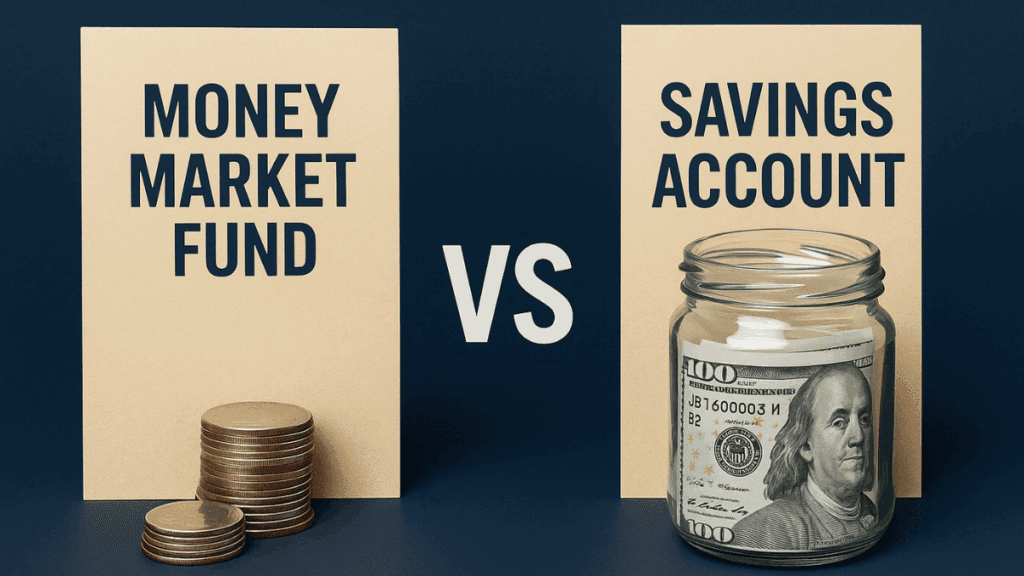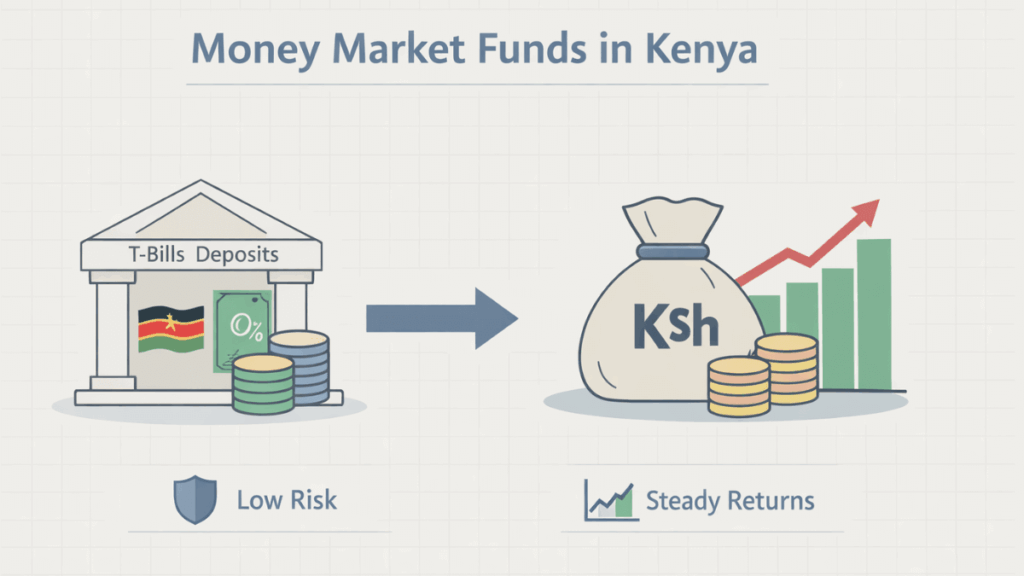Cytonn Investments, commonly known as Cytonn, was once marketed as one of Kenya’s most innovative investment and real estate companies. It promised attractive returns, modern real estate projects, and new investment opportunities for the growing middle class. But over time, Cytonn became one of the most controversial firms in Kenya’s financial sector, raising questions about governance, regulation, and investor protection.
This guide takes a clear, honest, and expert look at what Cytonn was, what went wrong, and the important lessons Kenyan investors should learn.
What Is Cytonn Investments?
Cytonn Investments Management PLC was a Kenyan alternative investment and real-estate company founded in 2014. It was started by former executives from a leading fund management firm who wanted to build a platform offering higher returns than traditional banks and investment accounts.
Cytonn’s Brand Promise
Cytonn positioned itself as a modern, youthful, tech-driven investment company offering:
- High-yield investment products
- Large and luxurious real estate developments
- Investment diversification for ordinary Kenyans
The company gained traction quickly because it targeted young, ambitious professionals and offered returns that were significantly higher than market averages.
Cytonn’s Main Products and Services
1. Real Estate Projects
Cytonn invested heavily in property development, including:
- High-end apartments
- Mixed-use urban developments
- Gated community housing
Examples of flagship projects included The Alma, Taraji Heights, Ridgeways Estate, and other ambitious developments.
2. High-Yield Investment Products (HYIPs)
The company created private investment funds that promised very high returns. The most popular were:
- Cytonn High Yield Solutions (CHYS)
- Cytonn Real Estate Project Notes (CPN)
These products offered returns up to 14%–18% per year, much higher than traditional regulated investment options.
Why Cytonn Became Popular in Kenya
Cytonn gained massive public interest because of three main factors:
A. Attractive Returns
At a time when bank interest rates were low, Cytonn’s high-yield products looked like a breakthrough.
B. Aggressive Marketing
The company used influencers, social media campaigns, and public events to build trust and excitement.
C. Real Estate Vision
Many Kenyans believed property was a safe long-term investment, so Cytonn’s real estate projects appeared promising.
What Went Wrong With Cytonn
Over time, Cytonn faced major financial and legal challenges. Understanding these issues helps investors avoid similar risks.
1. Liquidity Problems
Cytonn struggled to pay investors who needed to withdraw their money. This caused:
- Delayed payments
- Investor panic
- Loss of public confidence
Liquidity issues were a sign that the company relied too heavily on new investor money to fund existing obligations.
2. Unregulated Investment Products
Cytonn’s high-yield funds operated outside the Capital Markets Authority (CMA) regulatory framework.
This meant:
- Limited investor protection
- No strict oversight
- Higher exposure to risk
Many investors did not fully understand this difference.
3. Overreliance on Real Estate
Real estate projects take long to complete and require heavy funding.
When the market slowed down, Cytonn could not generate enough cash to satisfy investors.
4. Court Cases and Administration
Some Cytonn investment funds were eventually placed under administration due to insolvency concerns. This made it even harder for investors to recover their money.
5. Poor Corporate Governance
Public reports and investor complaints pointed to:
- Management disputes
- Lack of transparency
- Questionable decision-making
These governance gaps worsened the company’s financial troubles.
Impact on Investors
Many investors who put money into CHYS and CPN faced:
- Delayed payouts
- Uncertainty about recovering their funds
- Emotional and financial stress
The Cytonn case became a national lesson on investment risk and the importance of regulation.
What Cytonn Means for Kenya’s Investment Market
Cytonn’s rise and fall highlighted major gaps in Kenya’s investment landscape:
1. The Need for Stronger Regulation
The case emphasized why all investment products should be regulated to protect the public.
2. Investor Education
Many Kenyans invested based on marketing, not due diligence.
There is now a stronger push for financial literacy.
3. Realistic Return Expectations
Cytonn taught investors that high returns always come with high risk.
Lessons Investors Should Learn
1. Always Check Regulation
Before investing, confirm that the product is regulated by:
- Capital Market Authority (CMA)
- Central Bank of Kenya (CBK)
- Retirements Benefits Authority (RBA)
Regulated products offer protection and better oversight.
2. High Returns = High Risk
No genuine company can consistently offer extremely high returns with zero risk.
3. Diversify Your Investments
Never put all your money into one company especially one that is unregulated.
4. Understand Liquidity
Avoid investments that lock up your cash for too long unless you are prepared for the risk.
5. Research the Company’s Track Record
Look at:
- Past performance
- Leadership integrity
- Financial transparency
If something feels unclear, walk away.
Is Cytonn Still Operating Today?
Some aspects of the company are still undergoing legal processes and restructuring, especially the investment funds placed under administration. However, Cytonn is no longer seen as a reliable or active investment option for the general public.
Investors continue to seek updates about fund recovery through administrators, legal channels, and official notices.
Should You Invest in Companies Like Cytonn?
Only invest in:
- Fully regulated products
- Transparent companies
- Firms with audited financials
- Investments you fully understand
Avoid any product offering unusually high returns without clear, regulated oversight.
Final Thoughts
Cytonn Investments remains one of the most important cautionary stories in Kenya’s financial market. While the company brought innovation and excitement, its challenges revealed deeper issues of governance, regulation, and unrealistic expectations.
For any investor, the key takeaway is simple: do your research, understand the risks, and always prioritize safety over high returns.
Vincent Nyagaka is the founder of Chweya, where he breaks down complex financial topics into simple insights. A trader since 2015, he uses his market experience to help readers better understand investing, trading, and personal finance.



